Nutritional needs for vegans
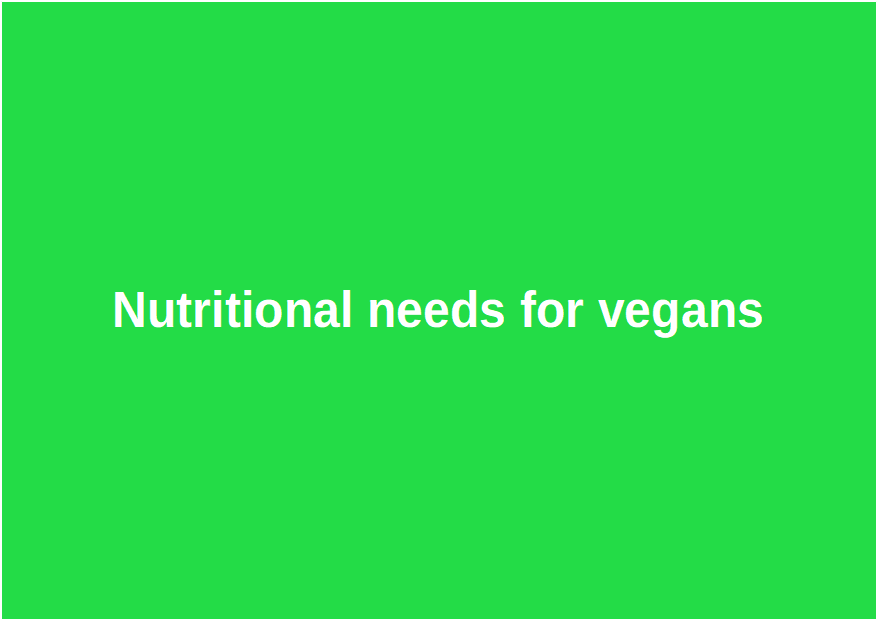
Vegans could be missing out on key nutrients in their diet
The vegan diet is currently very popular, but it is not always a healthy diet; the market is saturated with vegan junk products (a vegan doughnut is still a doughnut!), and even a healthy vegan diet could not be enough to meet our nutrients needs.
In fact, vegans are at risk for multiple nutrient deficiencies, and this is something that I see quite often in my practice.
The vegan diet lacks certain nutrients that are crucial for physiological function, and it needs very careful planning and execution, which unfortunately does not happen often.
Let’s have a look at these nutrients and what vegans can do to prevent deficiencies
Vitamin B12
Vitamin B12 deficiency in vegans is quite widespread, with symptoms like weakness, low energy, fatigue, unwanted weight loss, appetite loss and depression.
This vitamin is so important for the proper functioning of our body, it is involved in many processes such as DNA and red blood cells synthesis, myelin sheath production (the protective covering around our nerves)
and in the conduction of our nerve impulses.
It is available mainly from animal sources, so vegans will probably need to supplement.
Some plant sources like nori seaweed, spirulina, tempeh and brewer’s yeast contain small amounts of bioactive B12. Vegans should aim to eat these foods regularly and monitor their B12 blood levels.
Iron
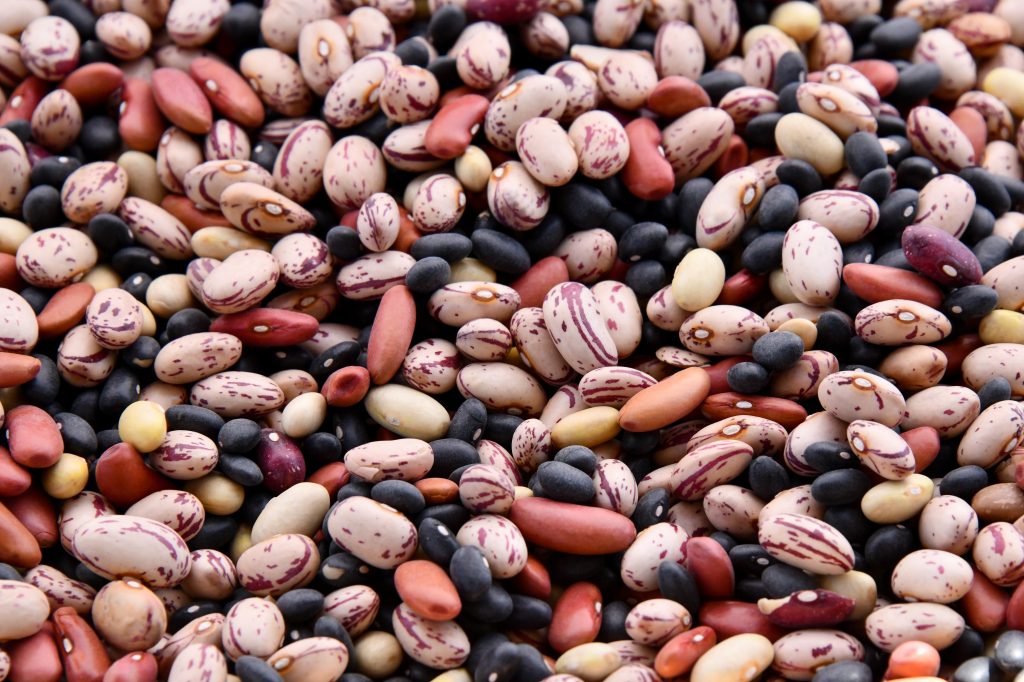
Another common deficiency that I often see in my vegan clients. Iron is an important mineral for our body, it is essential for the formation of haemoglobin and red blood cells, oxygen transport; cell division, cell growth and the synthesis of DNA.
It is involved in strengthening our immune system and increasing resistance to infection, it is vital for thyroid health, and it is a co-factor in the synthesis of neurotransmitters in the brain.
Iron’s bioavailability from plant sources (nonheme iron) is much lower than from animal sources (heme iron), so vegans should make sure to consume iron rich foods on a regular basis, and keep their iron blood
levels under control.
Plant-based sources include dark leafy greens, legumes, seeds, dried fruit and whole grains.
Vitamin C enhances iron absorption, so it is highly recommended to eat iron-rich foods with a source of Vitamin C, like broccoli, bell peppers, strawberries or citrus fruit.
Iodine
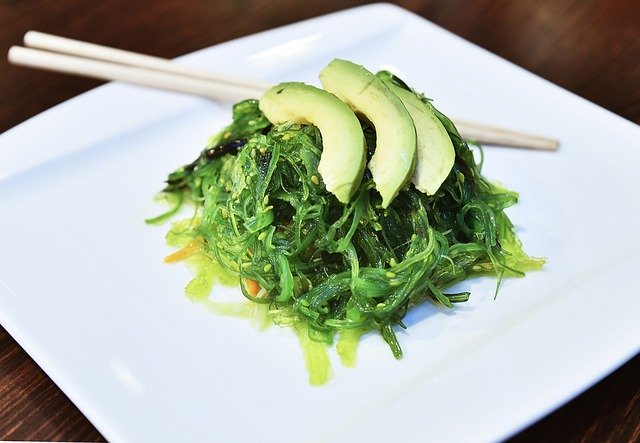
This is a mineral that is frequently lacking from our diets, not specifically vegan, since not many of us regularly eat seafood or fish, where iodine is mainly found.
Iodine is crucial to thyroid function and a lack of it can lead to hypothyroidism, with symptoms like low energy, depression, dry skin, hair loss and weight gain.
Vegans need to pay attention to this nutrient and make sure they consume enough of it. Sea vegetables in general are a good source, for example 3 sheets of nori seaweed contain almost all our daily requirements; kelp is quite rich in iodine and should only be consumed in small quantities. Also Himalayan salt contain some natural iodine.
Vitamin D

Vitamin D is so important for a wide range of processes in our body that is almost considered an hormone; immune system, inflammation response, mood, memory, muscle recovery, all depend on vitamin D for proper function.
This is the sunshine vitamin, so your levels will mainly depend on your sun exposure.
Here in the UK vitamin D deficiency is quite common not only in vegans, due to lifestyle (everyone is indoors glued to a screen of some kind most of the day) and lack of consistent sunshine throughout the year.
This is why I always advice my clients to have their blood levels checked and eventually to supplement.
There are not many plant-based foods containing Vitamin D, apart from mushrooms: maitake, shitake, portobello, they do all contain some vitamin D.
There are also many fortified products on the market (meaning artificial nutrients have been added to them), but these are also very processed and pretty much unable to meet our daily requirements.
Zinc
Zinc plays a role in over 200 chemical responses in our body, it is an immune regulator, it helps with cell growth and repair, it is involved in hormone production and much more.
A deficiency in this important mineral can lead to developmental problems in children, poor immune system functions, hormonal problems, infertility, poor wound healing and digestive issues.
Plant-based sources of zinc include legumes, tofu, nuts and seeds, whole grains and wheat germ.
Calcium
Calcium is essential for bone health, muscle and nerve function and is involved in many processes in our body, like blood clotting.
There are many plant sources of calcium, including soybeans, tofu, okra, almonds, collard greens, spinach, kale, broccoli, Brussel sprouts, cauliflower, dry figs, kelp and blackstrap molasses.
Vitamin A
Vitamin A plays an essential role in our immune and reproductive functions, growth and development and it is important in maintaining good eyesight and skin health
There are two main types of vitamin A:
- Preformed vitamin A:
in the form of retinol, only present in animal-based food sources, such as meat and dairy - Provitamin A: in the form of carotenoids, present in plant-based foods, such as fruits and vegetables.
Our body can convert carotenoids into the active form of vitamin A (retinol), so vegans should regularly eat carotenoids-rich foods, preferably with a little healthy fat, to maximise absorption.
Plant-based sources of carotenoids include sweet potato, pumpkin, butternut squash, carrots, kale, collard greens, Swiss chard, spinach, broccoli, sweet red pepper, black-eyed peas, mango, Cantaloupe melon, pink or red grapefruit, watermelon, papaya, apricots
Essential Fatty acids (Omega 3 & 6)
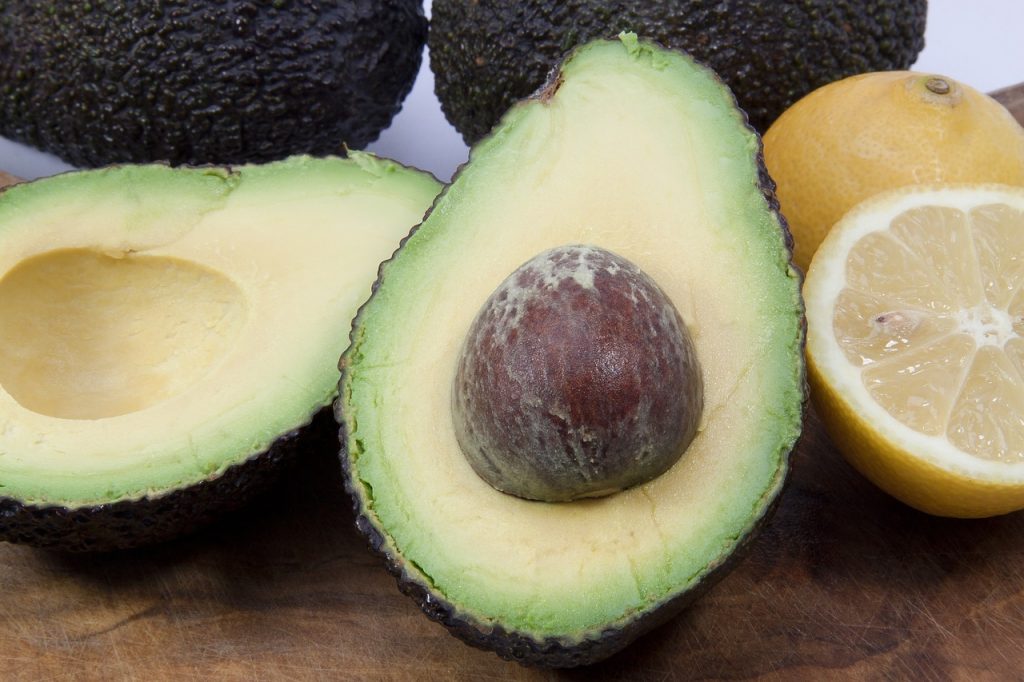
Essential fatty acids are critical for a healthy body, they are involved in many processes such as brain and nervous system’s development and functioning, hormone production, transport and breakdown of cholesterol, formation of healthy cell membranes, regulation of immune and inflammatory responses, blood pressure, liver function and much more.
They are considered essential because the body can’t produce them on its own so they must come from our diet.
The two primary EFAs are known as linoleic acid (omega-6) and alpha-linolenic acid (omega-3), and a good balance of the two is needed for good health.
While it is relatively easy to get Omega 6 from the diet (legumes, nuts and grains are good sources), vegans could struggle to get their Omega 3, since the primary sources are fish and seafood.
Plant-based sources of Omega 3’s include flax seeds, hemp seeds, chia seeds, pumpkin seeds, walnuts, seaweeds, avocado, soybean, tofu, tempeh, and dark leafy greens such as kale, collards, chard, parsley, and wheat & barley grasses.
Aim to eat these foods several days every week, and if you decide to supplement, choose only high quality algae oil, making sure it is in a dark glass bottle and free of toxins and synthetic flavourings
Proteins
Proteins are essential building blocks of our body, an important part of each of our cells, and they are involved in countless functions: our body uses them to make hormones, enzymes, bones, muscles, hair, nails, skin and blood, to build and repair tissues and so much more.
There is a kind of obsession on the market about protein, with plenty of products like protein powders, shakes and bars. Stay clear. Yes, they do contain some protein, but they are also full of additives and chemicals (BPA and heavy metals, for example) and can cause sugar spikes, stomach issues and even lead to weight gain.
And same for vegan burgers, now ubiquitous on restaurant menus and in supermarkets: these are highly processed foods, typically high in sodium, sugar, refined oils, artificial flavours, genetically-modified ingredients and other additives.
A good news for vegans (and all of us) is that there is no need to eat animal products in order to get our proteins. Plant-based sources of proteins such as legumes, seeds and vegetables are excellent choices as they also offer healthy fibre, vitamins and minerals.
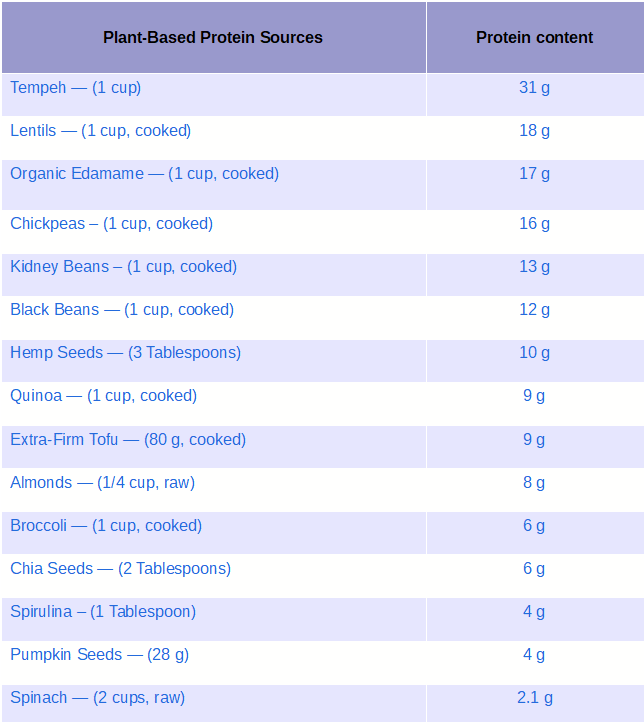
Is a vegan diet safe for children?
Just like adults, children on vegan diets are at risk of deficiencies in all the above mentioned nutrients.
The problem is, childhood is a critical time for growth and children need proper nutrition to grow and thrive.
Nutrients deficiencies at this critical age can lead to significant health damage; a lack of vitamin B12 in a child’s vegan diet could lead to neurological damage and developmental delays, a lack of vitamin A can lead to bone deformities or poor growth, and so on.
Kids can also be “picky eaters”, so we should make sure that what they eat brings proper nutrition.
Again, the market is full of fortified vegan products aimed at babies and toddlers; as already mentioned
above, processed foods and artificial nutrients are not the key to a healthy diet.
